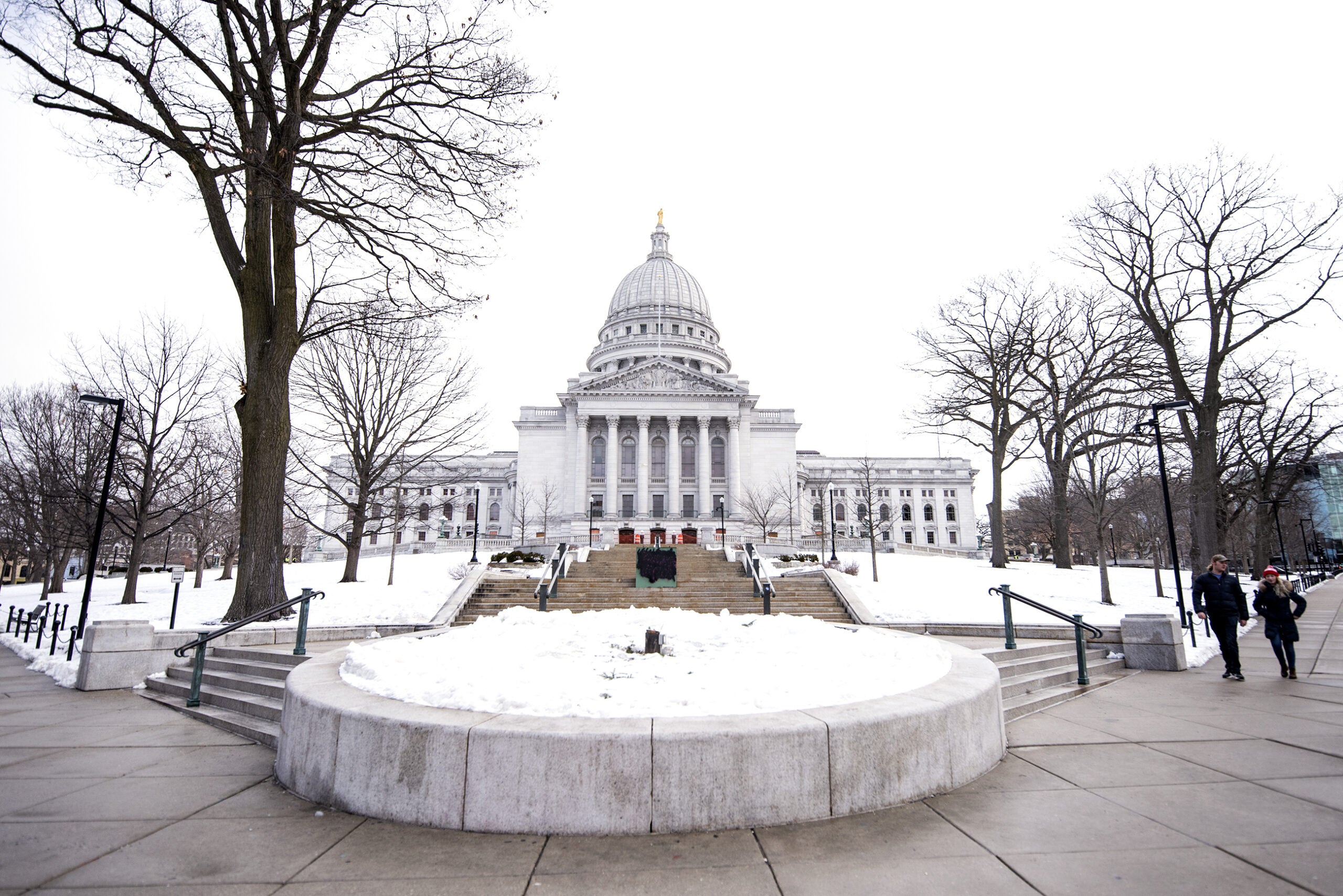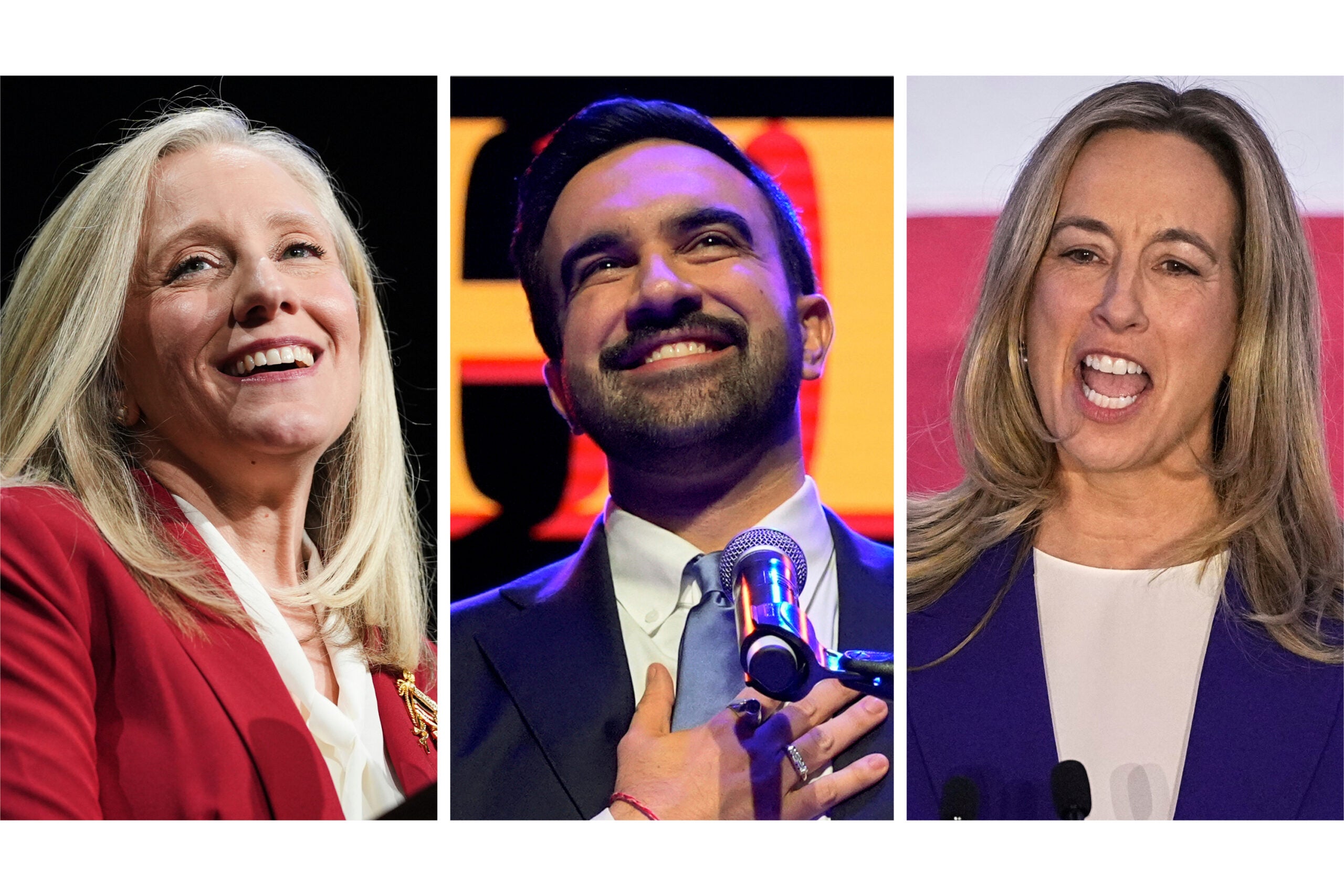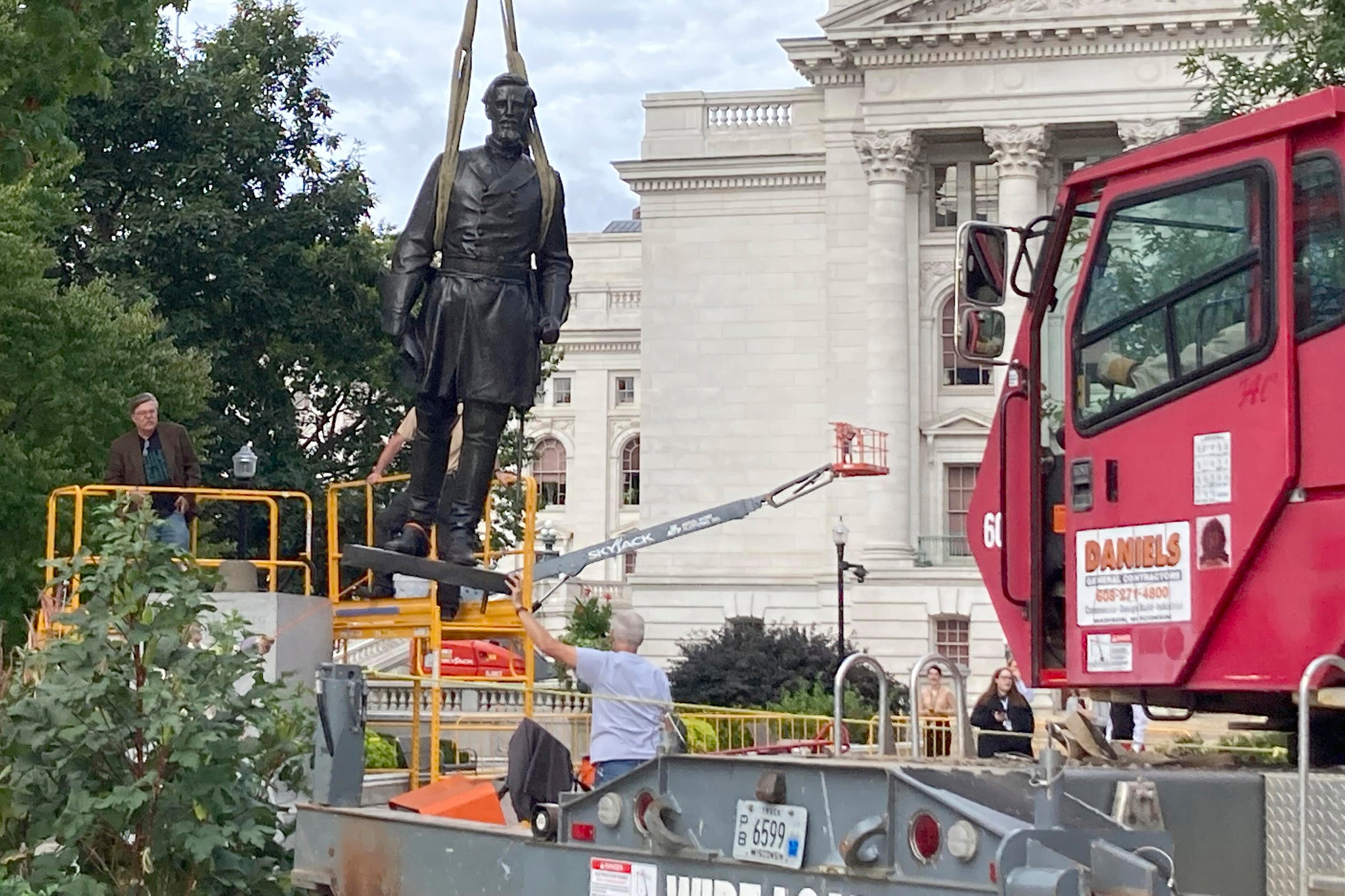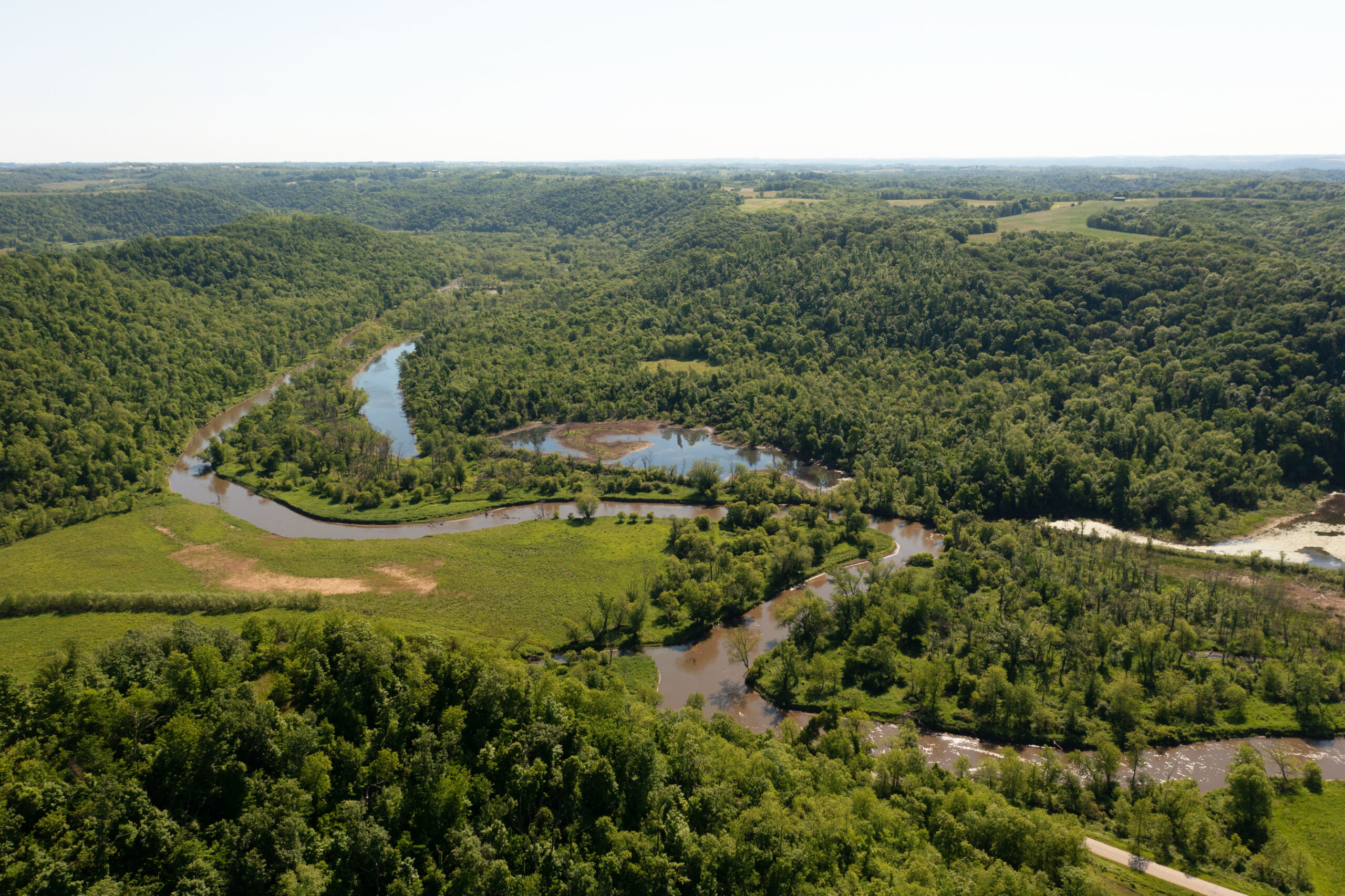High-intensity partisan conflict has pervaded state government in Wisconsin for the past several years, but 2021 did see a number of bipartisan achievements — perhaps more than casual political observers may expect.
According to Wisconsin’s nonpartisan Legislative Reference Bureau, 79 percent of bills that passed the state Senate and 74 percent of bills that passed the state Assembly in 2021 were bipartisan.
Those bipartisan achievements ranged from low-profile measures like a new law that increases penalties for traffic violations in areas where emergency vehicles are present to high-profile changes to state laws that regulate law enforcement practices.
News with a little more humanity
WPR’s “Wisconsin Today” newsletter keeps you connected to the state you love without feeling overwhelmed. No paywall. No agenda. No corporate filter.
Anthony Chergosky, professor of political science at the University of Wisconsin-La Crosse, said leaders of the Republican-controlled state Legislature are walking a fine line ahead of the 2022 election as they choose what bills to send to the governor for his signature.
“Republicans are threading a needle,” Chergosky said. “They don’t want to do too much, because they don’t want to enhance Gov. Tony Evers’ record going into his election campaign.”
However, Chergosky said GOP leaders also need to provide rank-and-file Republican lawmakers with enough accomplishments to tout ahead of their own 2022 reelection bids. When state government is under split party control, that’s where bipartisan bills come in.
Lilly Goren, professor of political science at Carroll University, said the proposals most likely to get bipartisan support include infrastructure development plans, which dole out money and projects to districts across the state. Expanding broadband internet access in Wisconsin, for example, was a major area of consensus in the current two-year state budget approved over the summer.
Outside of infrastructure plans, Goren said other bills likely to garner bipartisan support are those that haven’t passed through a partisan filter, however expected or unexpected that divide may be.
“If there is generally some modicum of consensus, then that’s usually what will also get passed without a lot of discussion or debate,” she said.
This year in the state Legislature, that sort of proposal has included a mandate for Holocaust education in Wisconsin schools, new standards for tracking sexual assault kits and upgrades to the state’s aged unemployment insurance system, all of which passed with bipartisan votes and were signed into law by the governor.
There have also been dozens of new laws that make technical changes to state statutes — things that largely fly far under the radar of even the keenest political observers. Those include a new law that gives boards that dole out professional credentials the ability to delegate some of their work to the state Department of Safety and Professional Services. There are also bipartisan laws that serve apolitical, ceremonial purposes, like one signed by Evers last month that designates State Highway 21 between Sparta and Oshkosh as a Purple Heart Memorial Highway.
GOP tax cut: An unintentional moment of bipartisanship?
Some contend the most high-profile bipartisan compromise of 2021 was a political miscalculation on the part of GOP legislative leaders.
In July, Evers signed the current two-year state budget into law — a budget that included a major GOP-backed tax cut. At the time, it was unclear whether the governor would sign the spending plan into law, as GOP lawmakers had eliminated hundreds of his proposals from the document. He had also vetoed a previous tax cut proposed by Republicans, saying the state money used to backfill the cut should instead be funneled to increased education spending and cutting property taxes.
After Evers signed the budget, a number of political insiders argued he could claim a major political victory: despite losing many of his proposals, he could claim some ownership of the tax cut during his reelection bid and avoid being labeled as an opponent of such measures.
“It was arguably a strategic misfire on the part of state legislative leaders,” Chergosky said.
Some bipartisan bills continue to flounder
Not all bills with bipartisan support have fared well in Wisconsin in 2021 — even those with strong public support.
A 2019 poll from Marquette University Law School found 83 percent of Wisconsinites support legalizing medical marijuana and, despite proposals sponsored by GOP legislators and known support from Evers, no such proposal has made progress in Wisconsin this year.
In April, Senate Majority Leader Devin LeMahieu, R-Oostburg, said marijuana legalization wouldn’t pass during this legislative session because of insufficient support among state Senate Republicans.
Goren said conflict within the majority party over a proposal is often enough to doom its chances. If even a few members of the majority are vehemently against a plan, leaders are unlikely to advance it.
“Party leaders want to maintain a unified front,” Chergosky agreed. “If there are divisions in the majority party, you’re going to see leaders being quite cautious.”
Another bipartisan bill that made headlines this year would make Colby the official state cheese of Wisconsin.
That plan has also floundered, not making it further than a public hearing in one chamber. While its coalition of Republican and Democratic backers have argued the official designation would be a well-deserved nod to a cheese that originated in central Wisconsin, opponents say it may send the wrong message to producers of other types of cheese in the state.
Divisive proposals still likely to take center stage
Despite the high percentage of bipartisan proposals that make it through the Legislature in any given year, including 2021, measures that spur bipartisan conflict are likely to remain center stage, according to experts.
Goren argued bipartisan compromise has become less attractive to voters — and, therefore, politicians — over the past few decades, as political tides have shifted toward increased polarization. She said some lawmakers may believe their constituents would rather have them block actions by the other side of the aisle than compromise to get new laws passed.
Goren said that perception may lead some lawmakers to downplay when they do compromise.
“There is also an approach, particularly by some members of the Republican Party, that the idea is not to get things done,” she said. “If you stand athwart the passage of legislation, that may be what your perception is that your constituents want.”
In 2019, former state Senate Majority Leader Scott Fitzgerald, R-Juneau, compared the GOP-controlled Legislature to a “goalie” blocking Evers’ plans for state government and policy. Fitzgerald successfully ran for Congress in 2020 and now represents Wisconsin’s 5th Congressional District.
Chergosky pointed out that many of each party’s most dedicated voters — people who vote in primary elections, contact lawmakers’ offices, write letters to the editor and engage in other advocacy efforts — are highly motivated to support candidates who stymie efforts by their political opponents. He said pleasing those voters is top-of-mind for many Wisconsin politicians.
“Both parties now understand that it is to their advantage to play up conflict,” he said.
Wisconsin Public Radio, © Copyright 2026, Board of Regents of the University of Wisconsin System and Wisconsin Educational Communications Board.







